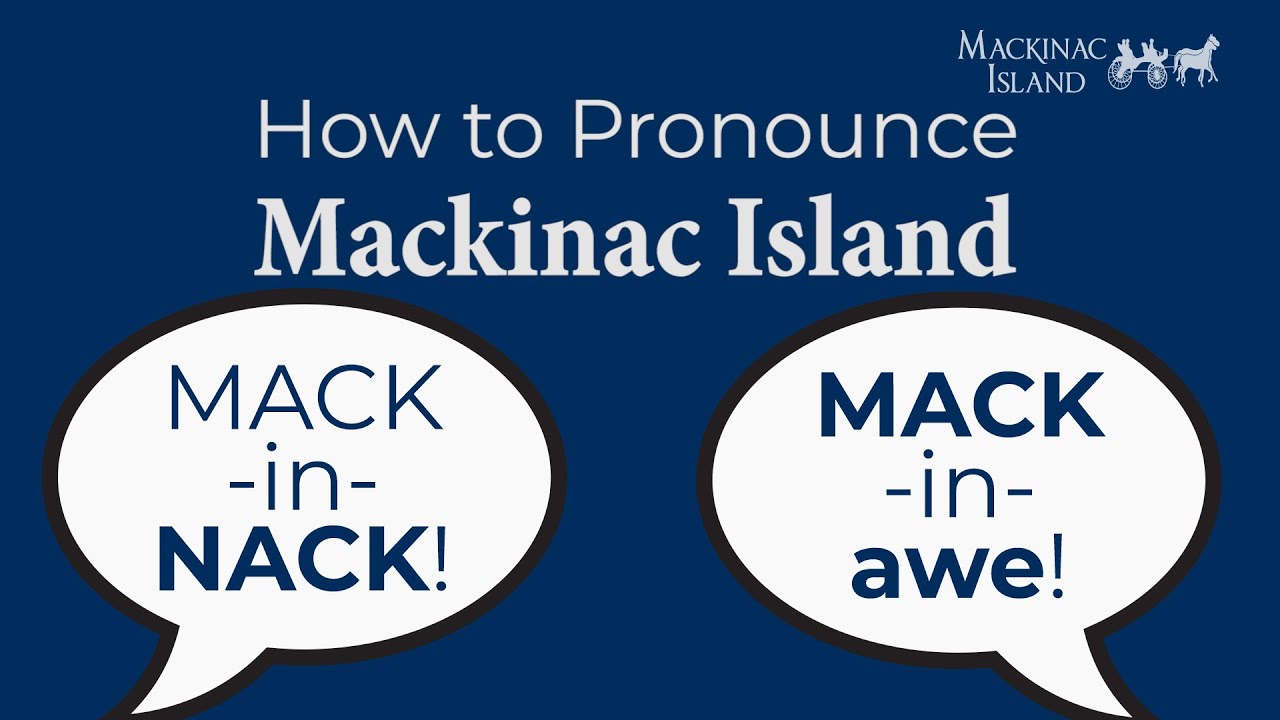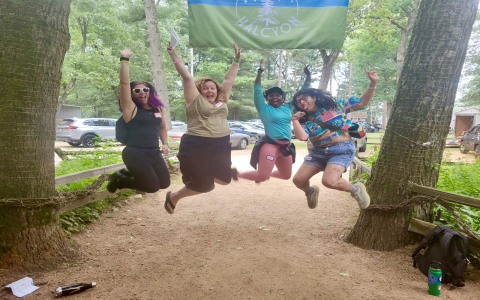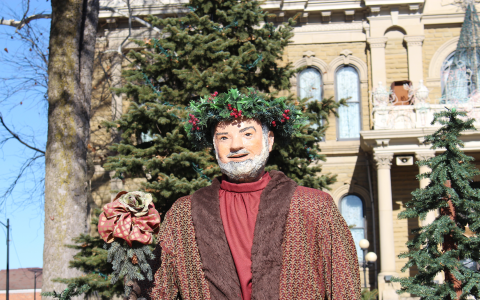The Pronunciation of Mackinac: A Linguistic Exploration
Mackinac, a name that resonates with history and natural beauty, often leaves people puzzled when it comes to its pronunciation. Nestled between Michigan’s Upper and Lower Peninsulas, Mackinac Island is a popular tourist destination known for its stunning landscapes and rich heritage. However, the correct way to say "Mackinac" is not immediately obvious to many. This article delves into the intricacies of its pronunciation, the cultural significance behind it, and the common misconceptions that surround this unique name.

To begin with, the pronunciation of Mackinac is typically rendered as "Mack-in-aw". This phonetic representation highlights the importance of understanding regional dialects and historical influences in American English. The name itself is derived from the Native American word "michilimackinac," which means "great turtle." This connection to indigenous culture is significant, as it reflects the area’s rich history and the blending of different linguistic traditions.
The pronunciation can be particularly challenging for those unfamiliar with the region. Many people instinctively pronounce it as "Mack-in-ack," which is a common mistake. This mispronunciation can lead to confusion, especially when discussing the island in social or educational settings. Understanding the correct pronunciation not only enhances communication but also shows respect for the cultural heritage associated with the name.
Mackinac Island, with its charming streets and absence of motor vehicles, offers a glimpse into a bygone era. The island’s name is steeped in history, and its pronunciation serves as a reminder of the diverse influences that have shaped the area. The French, British, and Native American cultures have all left their mark, contributing to the unique character of Mackinac. This blend of influences is reflected not only in the name but also in the island’s architecture, cuisine, and traditions.
Visitors to Mackinac Island often find themselves enchanted by its beauty and history. The island is famous for its fudge, horse-drawn carriages, and breathtaking views of Lake Huron. As tourists explore the island, they may hear locals pronounce the name with a certain pride, emphasizing the correct pronunciation as a way to honor their heritage. This cultural aspect adds depth to the experience of visiting Mackinac, making it more than just a picturesque destination.
In addition to its historical significance, the pronunciation of Mackinac also highlights the importance of language in shaping identity. Names carry weight; they tell stories and connect people to their roots. For the residents of Mackinac Island, the correct pronunciation is a point of pride, a way to assert their identity and preserve their history. It serves as a reminder that language is not just a means of communication but also a vessel for cultural expression.
Moreover, the fascination with the pronunciation of Mackinac extends beyond the island itself. It has become a topic of discussion among linguists and language enthusiasts alike. The way names are pronounced can reveal much about regional dialects and the evolution of language over time. Mackinac serves as a case study in how pronunciation can vary and how it is influenced by historical and cultural factors.
As people continue to explore the beauty of Mackinac Island, the correct pronunciation will undoubtedly become more widely recognized. This awareness fosters a greater appreciation for the island’s history and the diverse cultures that have contributed to its identity. By embracing the correct pronunciation, individuals can participate in a larger conversation about heritage, language, and the significance of place.
Ultimately, the pronunciation of Mackinac is more than just a linguistic curiosity; it is a reflection of the island’s rich history and cultural significance. As visitors and locals alike navigate the charming streets of Mackinac Island, they carry with them the stories and traditions that have shaped this unique destination. Understanding and respecting the correct pronunciation is a small but meaningful way to honor the legacy of Mackinac and its people.




